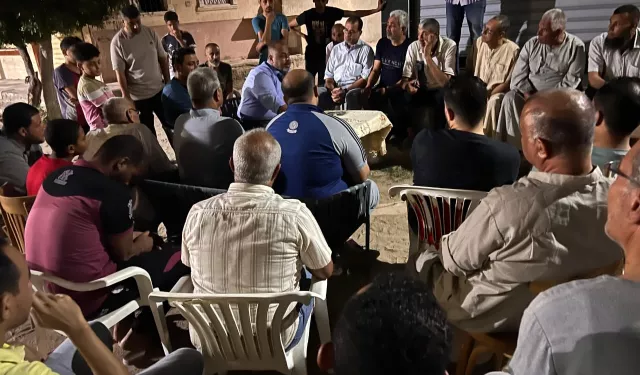Residents of Toson in eastern Alexandria are resisting government plans to seize hundreds of homes to make way for a new ring road, warning that more than 5,000 people face displacement without fair compensation or consultation.
Speaking anonymously, one resident told Al Manassa, “These homes are the fruit of a lifetime of hard work. We borrowed, built, installed utilities—and now they want to take it all without even telling us where we’ll live instead. No compensation can make up for what we’ve lost.”
In April, the Alexandria governor formed a committee to assess properties along the 23-kilometer highway planned under Egypt’s East Alexandria development project. The committee is led by the Montaza second district chief and includes officials from several bodies, among them the military engineering authority.
“There’s no way any payout will be fair, socially or financially,” another local said, adding that the average market value of a home in the area is about 4 million Egyptian pounds ($82,500).
On Friday night, unidentified individuals in plain clothes tore down anti-eviction posters plastered across homes. The posters had gone up after a Tuesday legal meeting between residents and lawyers preparing to challenge the order in court.
Legal challenge
Defense lawyer Mohamed Ramadan told Al Manassa the expropriation order targets 260 houses, four mosques, and a church within one densely packed block. “More than 5,000 people live in that zone,” he said. “The only solution is to cancel this decision.”
Ramadan said the residents' five-lawyer strong legal team will formally file an appeal. In the meantime, residents hired an independent engineering consultancy to propose alternate road routes that would spare homes. One proposal has already been submitted to the authorities.
Ramadan added that lawyers are holding regular meetings with residents to coordinate legal strategy. “We are using every legal channel available,” he said, citing a precedent when a demolition order for a tourism project was overturned in court.
Ramadan recalled the 2008 bid to seize the land under then-governor Adel Labib, which was stopped after a six-month sit-in and a court ruling. “ Since then, we rebuilt, got reconciliation papers, installed five major utilities, and even received a road paving order. These aren’t illegal homes.”
Over 200 people now attend community strategy meetings every ten days, a member of the legal team told Al Manassa. “We want to unify the community’s position and keep everyone updated,” he added, noting MP Diaa El-Din Dawood has voiced support.
Despite repeated requests, the lawyers have not secured a meeting with the governor. More lawyers have joined what is now called the “Toson Lawyers Group.” The team stressed that all actions will remain legal. “We’ve already printed banners declaring: we will not leave our homes.”
Government plans, resident proposals
Documents reviewed by Al Manassa show the project is being carried out in three phases: from the Military Police crossing to Bridge 25 through Ezbet El-Koubaniya; from the Maritime Academy to military-owned land; and finally through the residential cluster near the 25 crossing.
Residents have filed multiple complaints via the presidential and cabinet websites, as well as to the Ministry of Transport and the governorate. They are demanding an in-person meeting with the governor to present their alternative route.
One lawyer, requesting anonymity, said a group of residents recently accompanied him to meet Transport Minister Kamel Al-Wazir, who pledged to review the matter with the governor.
Petitions without response
In August, after learning of the eviction order in July, residents filed a grievance seeking its cancellation or amendment. Lawyers flagged procedural irregularities, but authorities have yet to reply.
Al Manassa attempted to contact Montaza 2 District Chief Engineer Doaa Abdel Razek, but received no response.
Another resident confirmed 227 buildings had been marked for demolition, each averaging five apartments and housing about 5,000 people. “There are three mosques, a church—the only one in this neighborhood—and several charities, including a food distribution nonprofit inside Toson Mosque.”
“Some buildings have more than 35 flats, and no house is worth less than EGP 5 million. This neighborhood is tightly woven—every two or three homes form a street. We’ve met our lawyers, printed flyers, and hung them on our homes: we will not leave,” they added.
Residents stress that all the homes are connected to utilities—water, gas, electricity, sewage, landlines, internet—and many have reconciliation certificates for building violations, reinforcing their legal standing.
“This house is our life’s work,” said another resident. “We paid taxes, utilities, and legalization fees. Now they want to flatten everything. Why not use the nearby empty land instead? Our homes are a red line.”
The new ring road project aims to connect El-Mahmoudiyah corridor in the east to the new city of Abu Qir in the west of Alexandria.
